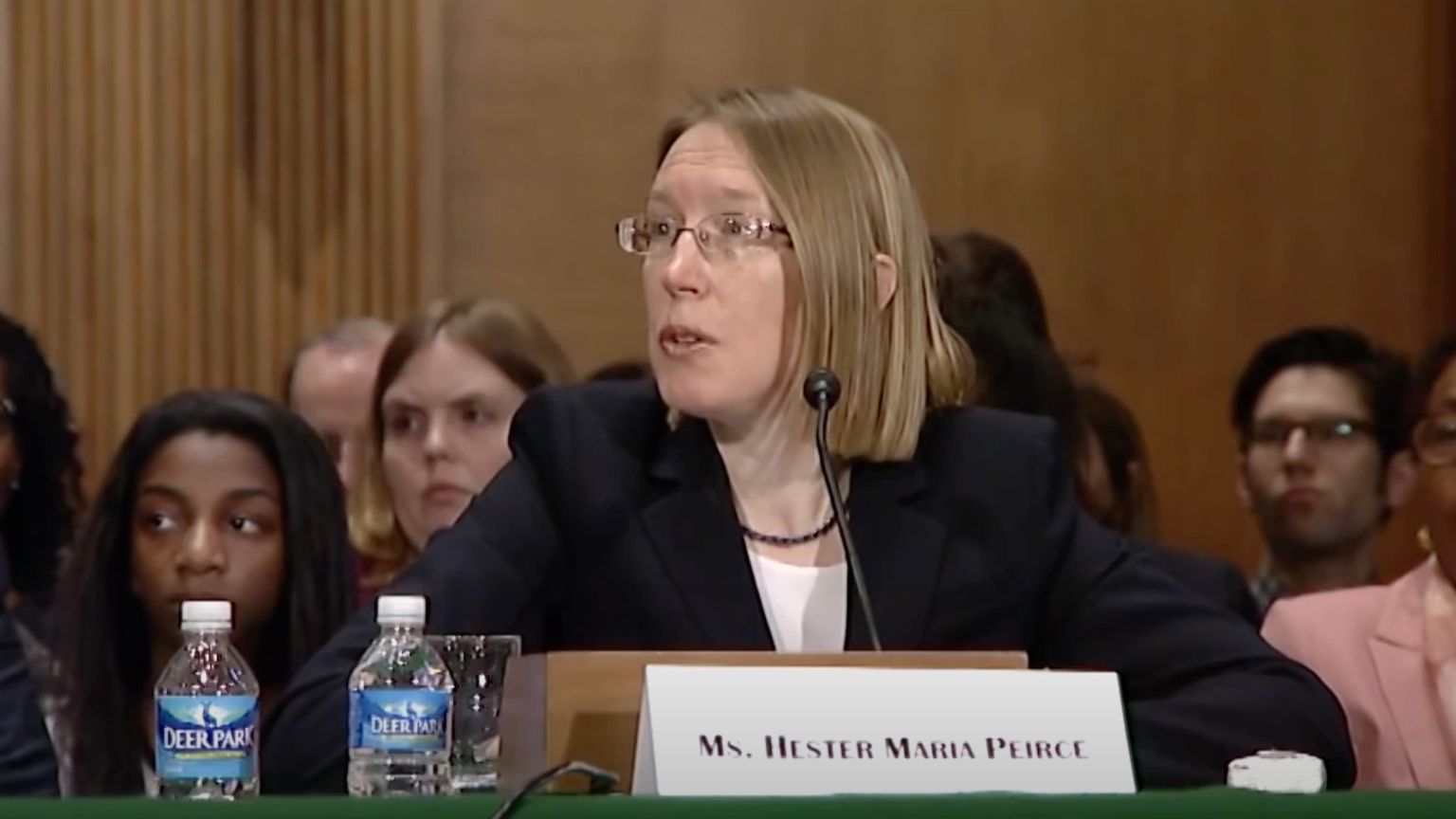Securities and Exchange Commission’s commissioner Hester Peirce has criticized the regulator’s proposed amendment to the Exchange Act, aimed at amending the definition of the term “exchange.”
In a statement, Peirce said that the “Commission aggressively expands its regulatory reach to solve problems that do not exist.”
From the statement:
“The release’s ambiguity undermines fundamental First Amendment protections.
“Because the release makes everybody involved in the relevant blockchain ecosystem part of a ‘group,’ it creates significant ambiguity around what speech requires government pre-approval, which will unavoidably chill constitutionally-protected speech. The reopener suggests that an individual, who, ‘acting independently and separate from an organization’ and without any agreement for that code to be used in a trading venue, publishes code ‘may be less likely’ to be part of a group for these purposes. On the other hand, an organization that ‘deploys’ such code likely would be part of a group that would trigger registration requirements. And if you are a paid developer, you ‘could be acting in concert with a group of persons to provide a market place or facilities for bringing together buyers and sellers.’
“What does all of this mean? Do First Amendment protections extend only to code published by hobbyist coders? Does a university professor who, as part of her research publishes such code, risk triggering the exchange definition merely because she is paid for that research? Is a non-profit organization subject to First Amendment protections different from those available to individuals? Is such an organization that deploys experimental code subsequently used by others, perhaps in slightly modified form, to create a decentralized trading venue part of the group? My T-shirt might even get me in trouble: It is not just a pretty design; this shirt republishes the code submitted by a commenter who explained that buyers or sellers of tokens could use it to express non-firm trading interest. If I wear my T-shirt out in public after this rule takes effect, do I have to register? What if I sell this T-shirt to someone who then deploys the code?
“Rather than embracing the promise of new technology as we have done in the past, here we propose to embrace stagnation, force centralization, urge expatriation, and welcome extinction of new technology.”
The SEC’s proposed amendment would result in decentralized platforms being subject to SEC regulation. First proposed in January 2022, the proposal would give the SEC regulatory control over platforms using “communications protocols.”
When it was proposed, many raised concerns over the ambiguity of the term.
Because of the concerns raised by the crypto industry, the SEC reopened the comment period for the amendment.
According to SEC chair Gary Gensler, the current definition of the term exchange already covers many cryptocurrency platforms, including decentralized ones, Be In Crypto reported.
The Exchange Act defines an exchange as “an organization, association, or group of persons,” but the definition does not exactly apply to decentralized platforms where the marketplace is software and those participating do not know one another.
Peirce’s statement noted that the SEC failed to define a “communication protocol system.” She added that the SEC included the term without consideration of the effects it could have.
Peirce said that the SEC did not consider if compliance would be possible and said it could be an attempt by the regulator to force decentralized finance (DeFi) into non-existence.
She added that, “rather than the SEC responding to commenters’ serious concerns about the breadth, ambiguity, unworkability, and potential disruption of the proposal, the reopener, with few exceptions, doubles down on the defects identified by commenters.”
The post SEC commissioner Hester Peirce says proposed Exchange Act changes threaten free speech appeared first on Reclaim The Net.
Reclaim The Net is a free speech and online privacy organization that defends our individual liberty by pushing back against big tech and media gatekeepers. Much of their work focuses on exposing digital tyrants and promoting free speech and privacy-friendly alternative online services. Visit reclaimthenet.org
